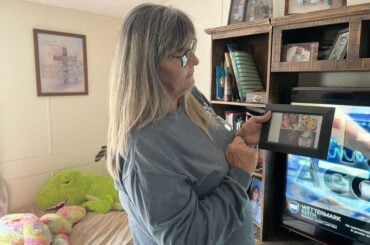With scientists rushing towards a vaccine—nearly 200 teams of researchers around the world are working on it simultaneously—everyone is wondering when one will be ready and if it will be safe to take, especially for children.
Americans are eager to get back to normal, but perhaps no group more so than parents, who’ve been saddled with new challenges this year as a result of the pandemic. The only path back to normalcy relies on a vaccine, but it’s no secret that it normally takes years to research, test, and develop a vaccine before it’s ready for distribution. That’s why many experts are pushing back on the notion that one will be available before the year is out, and want to emphasize that wearing masks, maintaining physical distance, and other risk mitigation measures will continue to be an important part of controlling the spread of COVID-19.
What we can expect
Robert Redfield, the director of the Centers for Disease Control and Prevention, recently told Congress that a vaccine wouldn’t likely be available to most Americans until at least the middle of 2021, despite being on a faster track than any other previous vaccine. Even if one were to become available before the end of this year, it would be in limited supply and recipients would have to be prioritized, with frontline healthcare workers, seniors, and those with underlying conditions likely receiving it first.
The normal path for a vaccine starts with adult trials, which commonly encounter pauses and setbacks, as some COVID vaccine trials have already seen. This can slow progress, but ensures safety. It’s only when no significant side effects are found that trials generally begin on teenagers, then continue down to the lower ages. Children’s trials are critical, allowing vaccine developers to adjust doses to accommodate their unique biological needs, achieving the best possible protection with the fewest side effects.
The latest information indicates that children are not likely to receive clearance for the vaccine until at least the fall of 2021, maybe longer. That’s because all of the trials to date have been on adults, and trials for children had not set to begin anytime soon. However, Pfizer announced this week that it has obtained FDA approval to expand its COVID-19 vaccine trial to include kids as young as 12 years old, which will accelerate scientists’ learning about efficacy in children, and could ultimately bring a safe vaccine to market sooner.
The approval came after Sara Goza, president of the American Academy of Pediatrics, wrote a letter strongly encouraging both the Food and Drug Administration (FDA) and the U.S. Department of Health and Human Services (DHHS) to move forward with clinical trials in children. Over half a million children have been infected with COVID-19, and while they’ve been shown to largely suffer milder symptoms than adults, they can spread the disease. Goza urged that it is unethical “to allow children to take on great burdens during this pandemic but not have the opportunity to benefit from a vaccine, or to delay that benefit for an extended period of time, because they have not been included in vaccine trials.”
The vaccine will be safe—despite some public doubt
To make matters more complicated, all of the current confusion about vaccines is encouraging anti-vaxxers, fueled by conspiracy theorists and coronavirus deniers. The CDC, the World Health Organization, and the AAP all agree that vaccines save lives and that delaying or refusing vaccines leaves children vulnerable and puts others at risk.
For those who are concerned about the efficacy of a COVID-19 vaccine in particular, especially one that’s being rushed to market, the public needn’t be worried, says the Department of Health and Human Services (DHHS). “Rather than eliminating steps from traditional development timelines, steps will proceed simultaneously,” says a DHHS fact sheet about Operation Warp Speed, the name given to the effort to manufacture and distribute 300 million doses of the vaccine as soon as it receives approval from the FDA. Thanks to significant government investment, vaccines are being manufactured as they’re being developed for the first time ever, shortening the timeline. Those that don’t receive FDA approval will either be tossed out or used in further research, as appropriate.
In an effort to earn more of the public’s trust, all of the pharmaceutical companies working on a vaccine recently signed a safety pledge vowing not to release any vaccine until it has been shown to be safe by the FDA. Still, only 51 percent of Americans say they would definitely or probably get a vaccine to prevent COVID-19 if it were available today, according to a Pew Research Center survey. Currently, there are fewer than 10 companies and institutes around the world with vaccine trials in the final stage of development, with tens of thousands of participants each. At least two countries, Russia and China, have begun distributing vaccines before trials have been completed.
With so much uncertainty about when everyone can get a vaccine, safety protocols like mask-wearing, hand-washing, and social distancing aren’t going away anytime soon. The best thing parents can do is continue to enforce these protocols at home and when they’re out and about with their children. In an effort to tame expectations, it might be wise to just treat it as what it is—a new way of life. The sooner we all get used to these safety measures, the faster they’ll be accepted and put into practice as we wait for science to deliver a vaccine that’s safe for everyone.







